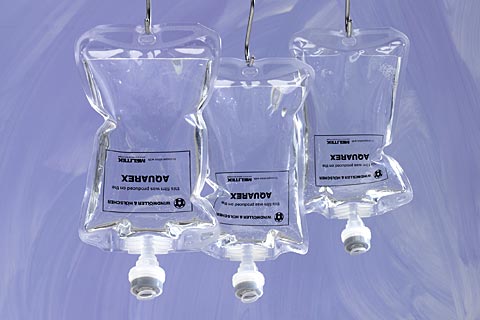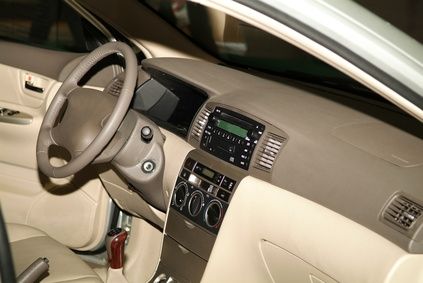 Darren Hodges was tired of seeing plastic bags floating like tumbleweeds, stuck in mesquite trees or tangled in barbed wire fences along the
Darren Hodges was tired of seeing plastic bags floating like tumbleweeds, stuck in mesquite trees or tangled in barbed wire fences along the
roads of Fort Stockton.
So Hodges, mayor pro tem of this West Texas city of 9,000 , pushed last year for a ban on plastic bags at checkout counters.
Now the local Walmart, the biggest retailer for miles, and mom-and-pop stores have to offer reusable bags or bags classified as biodegradable, including types of paper bags.
Plastic bags “are a hassle. We don’t want them,” Hodges said, adding that it wasn’t cost-effective for recycling companies to drive to the remote city to collect the bags. “They are so light and flimsy that they end up everywhere.”
The rural, politically conservative city seems an unlikely champion of a growing environmental movement. But it shares a disdain for plastic bags with the more than two dozen cities across the country that have banned the bags since 2007 , when San Francisco became the first U.S. city to enact such a ban.
Austin city officials are currently writing a plastic bag ban at the request of the City Council. They’ll hold a meeting Monday to gather public input. The council could vote on an ordinance as soon as next month .
Cities and environmental groups say the bags clog drainage systems, jam recycling machinery, are ingested by marine life and take eons to decompose in landfills. Plastic bag producers counter that the bags are convenient, reusable and can be recycled into other bags or materials such as decking.
The American-Statesman spoke to officials in a dozen cities about the scope of their bans and whether they’ve been effective. A few patterns emerged:
• The bans are varied, some applying to all stores, and some covering only large retailers.
• Several of the cities have also imposed a fee on paper bags, which some say take more fuel and energy to make and transport than plastic.
• Most cities put their bans in effect months or years after passing them, to give retailers time to phase out their stock of plastic bags and retrain employees.
• Several cities did outreach and education efforts, such as airing radio ads and giving away reusable bags, to alert customers to the change.
• Because many of the bans are less than a year or two old, there isn’t much data available on whether they’ve worked well.
San Francisco
San Francisco tried a pilot program for curbside collection and recycling of plastic bags in 2004 and found it was too costly.
The city considered imposing a fee on the bags, then state lawmakers — at the urging of plastics industry groups — passed a law that prohibited such a fee. So the city banned them instead.
The ban applies only to large grocers and pharmacy chains. It allows them to offer paper bags that have recycled content, compostable plastic bags and reusable bags, the definition of which includes a thicker plastic bag.
The California Grocers Association said many grocers and customers simply reverted to using paper bags instead, said association spokesman Dave Heylen .
“From an environmental standpoint, that isn’t effective,” he said. “There’s not an incentive to go to reusable bags.”
Also, some retailers initially offered a slightly thicker plastic bag allowed under the ban. The city has strengthened the durability rules to close that loophole, said Jack Macy , zero waste coordinator for the city’s Department of the Environment.
Two years after the ban took effect, a study found there was an 18 percent decrease in plastic bag litter, Macy said.
San Francisco is now considering expanding the ban to include all retailers and requiring them to charge at least 10 cents apiece for paper and reusable bags.
Washington, D.C.
A few years ago, a city study found plastic bags made up about a third of the trash in the Anacostia River , which courses through the eastern quadrants of Washington.
Council Member Tommy Wells’ office began researching plastic bag laws in other cities and meeting with retailers. He called for a 5 -cent fee on any single-use checkout bag — paper or plastic.
Wells didn’t suggest a ban because he was worried shoppers would simply switch to paper, chief of staff Charles Allen said. And retailers said a fee on both bag types would be a fairer approach, he said.
Source : www.statesman.com






